Brexit: Powers to be held back temporarily from Wales revealed
UK ministers have announced where they want to maintain UK-wide arrangements in devolved areas after Brexit.
It follows Welsh Government accusations of a "power grab", and the launch of alternative legislation in Cardiff Bay.
Ministers in London want to temporarily retain powers in 24 areas including animal health, food labelling and chemical regulation.
UK government say most of the areas of devolved policy affected will go straight to Cardiff and Edinburgh.
The Welsh Government said it showed the UK government wanted to "exert control" over the powers.
Welsh and Scottish ministers have been at loggerheads with the UK government over proposed Brexit legislation that, at least initially, planned to bring all powers in devolved areas that are currently weilded at EU level back to Westminster.
UK ministers have since agreed that most powers would be devolved, but that offer has yet to please governments in Cardiff and Edinburgh.
Cabinet Office Minister David Lidington said the list had been published in order to be open and transparent.
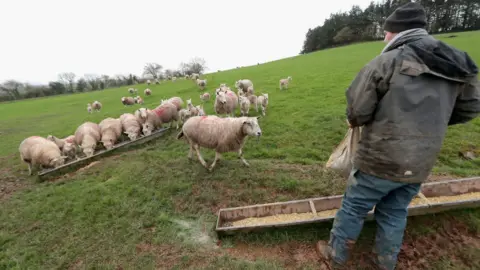 Getty Images
Getty Images
Analysis by David Deans, BBC Wales
Negotiations on the EU Withdrawal Bill have dragged on for months and months with a deal apparently remaining elusive.
There was more brinkmanship this week with both the Welsh Government's Continuity Bill introduced to the assembly last week, and Welsh Secretary Alun Cairns's insistence after Thursday's talks that the UK government would table its proposed changes to the Brexit legislation despite no agreement with the devolved governments.
By publishing this list, UK ministers are clearly trying to undermine Carwyn Jones and Nicola Sturgeon's argument.
The UK government has been accused of a large constitutional power-grab, but here we have a relatively short list of powers that would be held in London on, at least, a temporary basis.
Having said that, some of them cover major parts of the Welsh economy, including agriculture and food labelling.

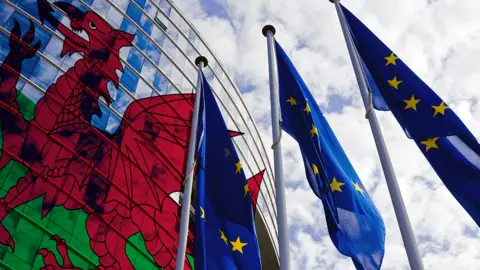 Getty Images
Getty ImagesMr Lidington said: "The list we have published today shows how many EU powers that were controlled by Brussels, will, after Brexit, be controlled by the parliaments and assemblies in Edinburgh, Cardiff and Belfast.
"The vast majority of these new powers will be in the control of the devolved administrations on the day we leave the EU.
"There is a much smaller group of powers where the devolved governments will be required to follow current EU laws for a little bit longer while we work out a new UK approach.
"We are discussing with the devolved governments how this process will work but, as the UK Government, we feel very strongly that we must have the ability to take action to protect the UK internal market which represents a huge investment to everyone in the UK."
Interviewed by broadcasters later he insisted certain powers needed to return to Westminster to avoid job losses, cost increases and a risk of higher prices.
"If you're a paint manufacturer in Wales you've got to stick to some chemical standards in producing your paint, but you want those to be the same as the paint standards in Scotland or Northern Ireland because you have customers there," he said.
"It just makes sense that we do so much trade in internal borders in the UK that we have a set of common sense rules agreed."
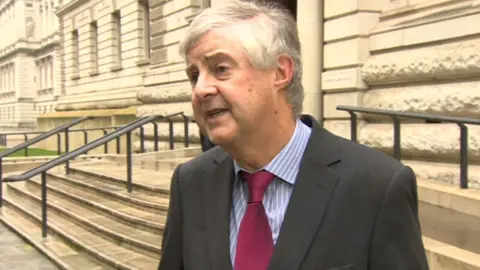
The Welsh Government has claimed that the list was "long overdue" and that it had agreed that the UK government should publish it.
It said officials have been working with the UK and Scottish governments to identify where common agreed approaches are useful and to examine what frameworks may cover, and that it would consider the latest analysis as part of this.
But Welsh finance cabinet secretary Mark Drakeford said the powers that will be allowed to stay with the devolved institutions were not new. "They are already devolved to Wales," he said.
"This analysis shows that the UK government want to exert control on 24 areas relevant to Wales out of a total of 64."
He said the UK government needed to make "significant changes to the Withdrawal Bill to fully respect devolution".
Welsh and Scottish First Ministers Carwyn Jones and Nicola Sturgeon are due to hold talks with the Prime Minister Theresa May next week.
Plaid Cymru's Brexit spokesman Steffan Lewis AM said: "This list leaves no question that these are devolved Welsh powers that Westminster is grabbing back, without our consent.
"The Welsh Government mustn't give them an inch. It is a blatant power-grab disguised as a Brexit necessity, and it must be opposed at all costs."
But David Melding from the Welsh Conservatives said: "It's time for the Welsh Government to come to the table in the national interest, and not allow itself and Wales to be held back by the nationalist whims of the SNP.

The list
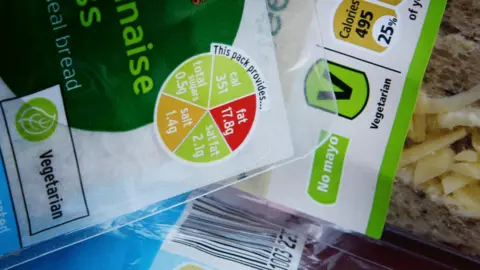 PA
PAThe UK government has listed 24 areas that it expects require a UK-wide legislative approach for a temporary period. They include:
- Agricultural support
- Animal welfare
- Fertiliser regulations
- Animal health and traceability
- Genetically modified organisms marketing and cultivation
- Organic farming
- Food labelling
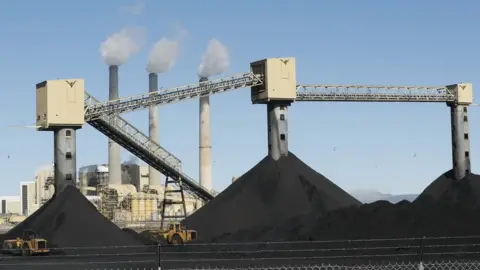 Getty Images
Getty Images- Hazardous substances planning
- Chemicals regulation including pesticides
- Elements of reciprocal health care
- Environmental quality - chemicals
- Ozone depleting substances and F-gases
- Implementation of EU Emissions Trading System
- Mutual recognition of professional qualifications
- Pesticides
- Waste packaging and product regulations
- Fisheries management and support
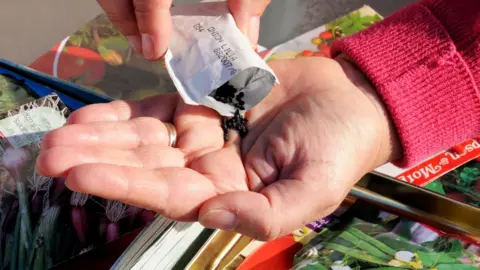 Getty Images
Getty Images- Food and feed safety and hygiene law
- Food compositional standards
- Nutritional health claims, composition and labelling
- Plant health, seeds and propagating material
- Public procurement
- Services - directive aimed at removing barriers to trade
- Zootech
